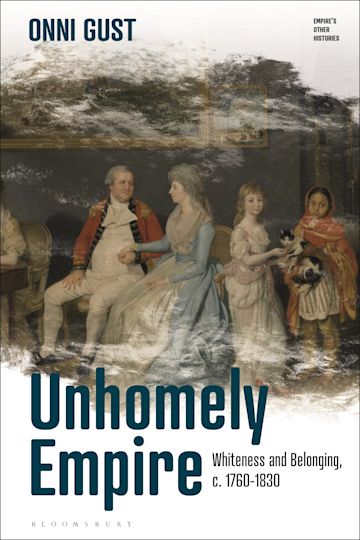 A year ago, BECC held a reading group and online discussion for our midlands colleague Onni Gust’s new book, Unhomely Empire: Whiteness and Belonging, c.1760-1830. Across two sessions of discussion, we explored the book’s analysis of how empire and whiteness made each other, its uses of intellectual and literary evidence across genres, and its relation of race to questions of gender and class.
A year ago, BECC held a reading group and online discussion for our midlands colleague Onni Gust’s new book, Unhomely Empire: Whiteness and Belonging, c.1760-1830. Across two sessions of discussion, we explored the book’s analysis of how empire and whiteness made each other, its uses of intellectual and literary evidence across genres, and its relation of race to questions of gender and class.
Since then, Gust’s book has been reviewed in several scholarly venues: by the literary scholar Manushag Powell in the Journal of British Studies, and by the historian Emily Webb in Social History. As Webb summarises, the book has two themes: “centralizing the idea of whiteness and belonging in the intellectual history of Scottish enlightenment thought and examining the lived implications of these ideas in Britain and the empire.” In Powell’s words, it “describes a late eighteenth-century discourse that expressed an inexorable entanglement of imperial expansion with loss: longing for home and a sense of belongingness, on the one hand, and the omnipresence of British imperial trade and travel, on the other.”
Over the next two days, we will return to Unhomely Empire to share commentaries by two of last year’s reading group participants – Ellen Smith and Liz Egan – as well as Onni Gust’s reply. I’m very grateful to Liz, Ellen, and Onni for agreeing to have their thoughts shared on the blog, and for their patience with what turned out to be a longer process than any of us imagined this time last year.
